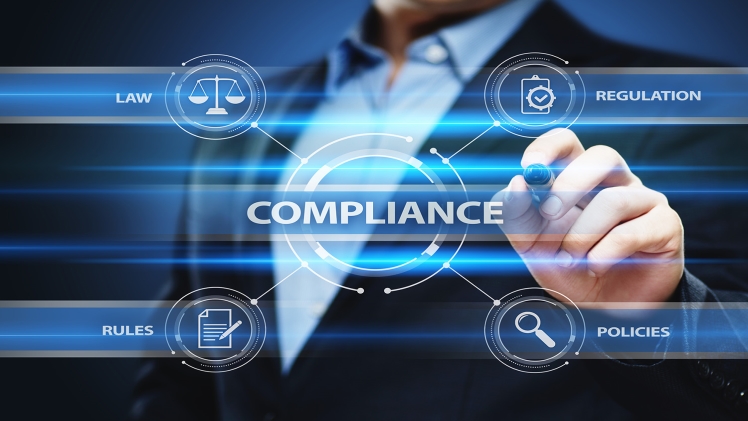All businesses are obligated to safeguard the sensitive data of their customers and employees. Privacy and security of sensitive data are regulated under global and local compliance laws. These compliance standards and regulations apply to all businesses regardless of their sizes. Compliance laws require businesses to meet industry standards and take the necessary measures to protect sensitive data.
But, in most cases, these measures are the minimum amount of security policies that represent the integrity, reliability, security, and confidentiality of your corporation’s systems. These standards are the indicators that you have some security policies in place to safeguard sensitive data, but meeting compliance standards doesn’t necessarily mean that your business is secure against cyber attacks.
We live in an era in which cybercrimes are skyrocketing. Malicious actors use more sophisticated techniques every day, that’s why meeting compliance requirements isn’t enough to safeguard the sensitive data that your company holds. Nowadays, being a security compliance company is more important than ever.
Security compliance helps you maintain and even exceed standards, and requirements while enabling enhanced security systems that mitigate the risks of potential breaches. You can read more to learn about security compliance solutions. Let’s take a closer look at the 5 hidden benefits of IT security compliance to your business.
1- Avoidance of Regulatory Penalties
In today’s world, all sizes of organizations should acknowledge that adherence to compliance laws is critical. If you don’t comply with these laws, your organization might face severe fines and penalties. Additionally, when your organization operates on different continents such as Europe, Asia, and America, then your company is subject to multiple compliance laws.
For example, General Data Protection Regulation (GDPR) compliance applies to all companies in Europe, and in cases where companies fall victim to data breaches, they face GDPR fines between 10 million to 20 million euros. To avoid regulatory fines and penalties, accomplishing security compliance is really important because your business will have enhanced security measures in place to combat cyber attacks and mitigate the risks of data breaches.
2- Protecting Your Reputation & Building Trust With Customers
Unfortunately, falling victim to a data breach not only has monetary costs, it usually harms an organization’s reputation, and reliability as well. Additionally, when your customers learn that their personal information has been stolen by malicious actors, they lose their trust in your company. Because when customers give you their sensitive credentials, they expect you to safeguard them.
Security compliance helps you perform your primary responsibility against your customers. You can only protect their sensitive data by being a security compliance company. In so many ways, security compliance can help you build better relationships with customers and protect your company’s reputation.
3- Better Data Management
Accomplishing security compliance allows your organization to know which types of sensitive data you are collecting and holding, where you store this data, and how you protect it. Identifying the data that you have is vital because you can set adequate security policies and measures to protect this sensitive data. In short, security compliance can help your business to manage data better, and increase organizational efficiency.
4- Enhanced Security
To accomplish security compliance, your company needs to build a security compliance plan in which your security and compliance teams work together. Security compliance plan includes constantly auditing, monitoring, analyzing, and testing current systems, and making risk assessments, and incident response plan.
By auditing your current systems, you can learn vulnerabilities, gaps, and non-compliant areas. Once you learn what vulnerabilities and non-compliant areas you have, you can implement security tools to fix vulnerabilities and reduce non-compliant areas. The last step of your security compliance plan is testing your security systems to learn if your security tools are functioning properly or not.
Putting a security compliance plan in action will help your business to enable enhanced security that is compatible with compliance requirements and standards. Additionally, you can reduce the non-compliant areas, and leave no vulnerabilities, and gaps behind. In short, security compliance allows your business to have enhanced security against cyber attacks and mitigate the potential risks of cyber threats.
5- Improved Identity & Access Management
Improved identity and access management tools are the most important components of security compliance. Your company can’t let every employee access sensitive data that you hold. Security compliance allows you to set permission and access policies for users and applications so that not everyone or every application can access sensitive data.
The network segments that contain sensitive data should be reachable to only authorized users. When you have an enhanced identity and access management tool in place, it ensures that only authorized users can reach sensitive data and confidential information. In short, security compliance allows you to control who is accessing which data and enables improved identity and access management.
Last Remarks
Safeguarding your employees’ and customers’ confidential information and sensitive data is the primary responsibility of your business. Adherence to compliance requirements, standards, and laws is critical, but meeting these requirements doesn’t make your business secure against cyber threats. That’s why being a security compliance company is vital as it strengthens your cyber security posture while maintaining and exceeding compliance standards.
